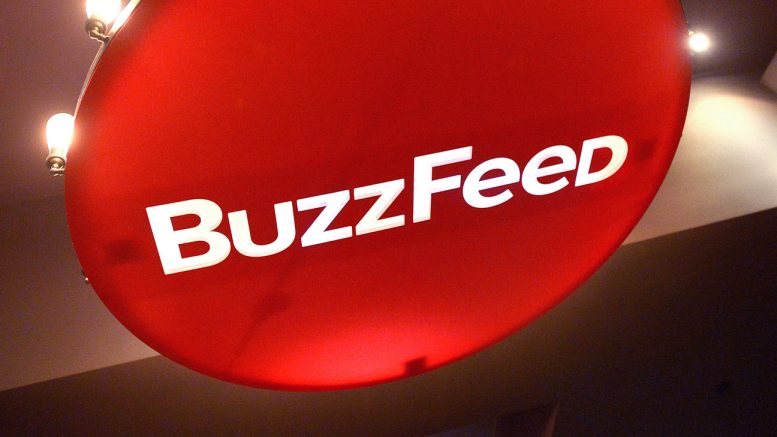On Thursday, in a court of law, BuzzFeed fought for the right to verify what’s true and what’s fake. The digital news hub, partly owned by NBCUniversal, is defending an $11 million defamation lawsuit over an Aug. 24, 2015 story headlined, “The King of Bullsh*t News.”
The subject of that story was the wacky reports from Michael Leidig’s Central European News, including a story about a woman in Vienna who caused a car crash when sunbathing naked and another about a Macedonian man who chopped his own penis off after his girlfriend told him it wasn’t big enough.
In January 2016, Leidig filed suit with the contention that he was hardly engaged in fake news. Keep in mind that this legal controversy arose before the widespread use of the term “fake news” to describe the media. BuzzFeed’s story and Leidig’s subsequent lawsuit happened before President Donald Trump bestowed his “fake news” honorific upon BuzzFeed itself at a January news conference shortly after BuzzFeed revealed the contents of an intelligence officer’s dossier about Trump’s dealings in Russia. The case is still pending, and the latest court papers came almost simultaneously with CNN convening the finest minds in linguistics to discuss Trump’s comment, “The leaks are absolutely real. The news is fake.”
BuzzFeed filed court papers in response to a summary judgment motion filed on January 13 by Leidig’s attorney Harry Wise.
Typically, in defamation cases, defendants respond to lawsuits with a motion to dismiss. A judge examines the plausibility — or likelihood — of claims, and if the suit moves forward, the parties exchange documents and prepare for a possible trial giving jurors an opportunity to weigh evidence and determine what’s true or not.
That’s not what happened here.
In this instance, the plaintiffs jumped straight to a summary judgment motion, telling the judge to rely on a sworn declaration from Leidig stating he never created or knowingly published a fake news story and hold that BuzzFeed libeled him as a fraudster as a matter of law.
“If BuzzFeed has admissible evidence to the contrary, it should offer it in opposition to the motion,” wrote Wise, also seeking to preclude a finding that his client is a “public figure” who needs to demonstrate actual malice to prevail.
Hold up, retorts BuzzFeed in its court filing yesterday.
BuzzFeed’s attorney Katherine Bolger tells the judge that it hasn’t even gotten a chance to complete discovery. The defendant complains that the other side is refusing to comply with document requests, “claiming alternatively that they are not required to do so or that they are prohibited from doing so under European privacy statutes — and there have been no depositions.”
Bolger argues that Leidig hasn’t come close to establishing material falsity and that a finding of such before discovery happens is “unprecedented and unwarranted.”
That said, BuzzFeed feels entitled to its own summary judgment victory and a dismissal of the case.
First, and foremost, it says the plaintiffs have not established that its “Bullsh*t News” article was false.
Second, in a move that’s arguably short-sighted given that BuzzFeed may one day want to challenge those who assert BuzzFeed is “fake news,” it says the judge should determine that Michael Leidig and Central European News are public figures.
“In other cases, courts have found journalists to be public figures where he or she ‘enjoys significantly greater access to the channels of effective communication and hence has a more realistic opportunity to counteract false statements than private individuals normally enjoy,'” states the BuzzFeed motion. “Similarly here, Plaintiffs have invited comment about their role in the controversy surrounding ‘fake news’ and ‘viral news’ — something that was of extreme public importance even before the recent headlines in the wake of the U.S. presidential election. And Plaintiffs access to channels of communication cannot be doubted — Plaintiffs plead they wrote a book about BuzzFeed about this dispute.”
BuzzFeed thus gives the judge two options: Either compel discovery, or without the benefit of a real search for truth, declare the same news outlet that published the Trump/Russian dossier without verifying the accuracy of its contents the winner.
Source: www.hollywoodreporter.com





Be the first to comment on "Buzzfeed Has a List of Reasons Why It Shouldn’t Lose Lawsuit Over “Bullsh*t News”"